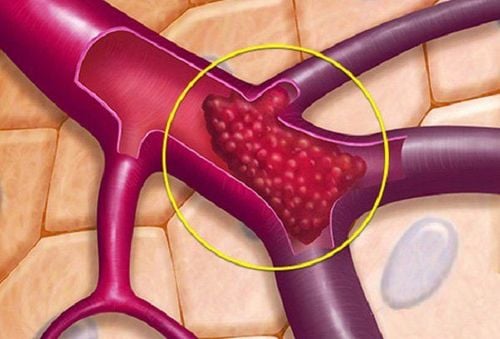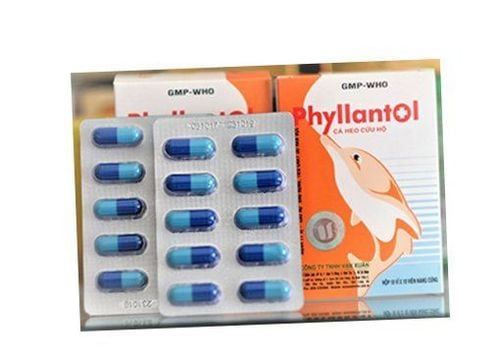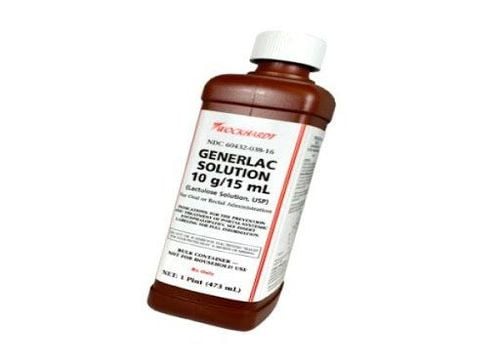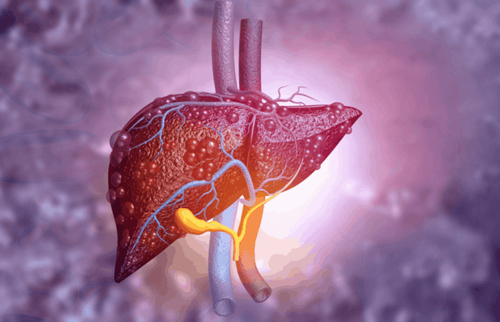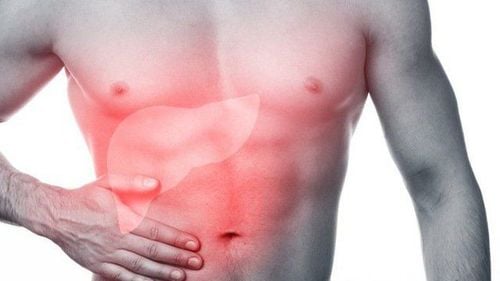This is an automatically translated article.
Pain in liver cancer is very common. In addition to questions such as does liver cancer hurt, or does terminal liver cancer hurt, most patients are also very interested in effective ways to relieve pain.1. Liver cancer overview
An adult's liver is the size of a soccer ball, the largest internal organ in the body. The liver is located in the right epigastrium of the abdominal cavity, just above the stomach and below the diaphragm. The liver plays a very important role in metabolism and the immune system of the body. In other words, humans would not be able to survive without the liver working.
There are many diseases that affect the liver, especially among them is liver cancer. When cancer forms in the liver, they destroy liver cells and interfere with normal liver function, reducing liver function.
Hepatocellular carcinoma, abbreviated as HCC (Hepatocellular carcinoma), is the most common type of liver cancer. Other forms such as hepatoblastoma, intrahepatic cholangiocarcinoma, and extrahepatic cholangiocarcinoma are rarer. When another part of the body is cancerous, such as the lung, large intestine (colon) or breast, metastases often lead to liver cancer.
2. The location of pain when having liver cancer
Does liver cancer hurt? When having liver cancer, patients often feel pain concentrated in the epigastrium spreading to near the right shoulder blade. The pain can sometimes extend to the back, or appear in the right lower quadrant. Liver cancer pain is also often accompanied by swelling in the abdomen, legs and ankles, causing a lot of discomfort for the patient.
Does terminal liver cancer hurt? For patients in the late stage, they will often feel pain in the body, may appear liver colic with very intense pain. The frequency of pain will increase gradually with the stage of the disease as well as the size of the tumor.
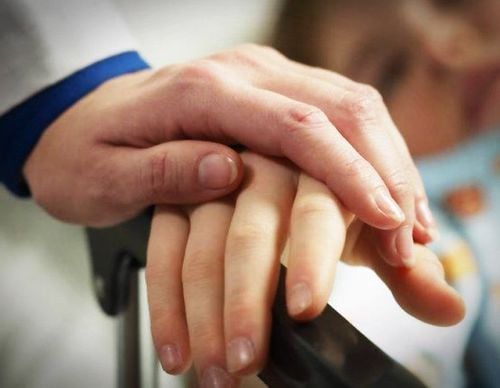
Bệnh nhân ung thư gan giai đoạn càng muộn thì sẽ càng đau
3. Causes of pain in liver cancer
Patients with liver cancer or other forms of cancer that have spread to the liver may experience pain due to a variety of factors, including:
Tumor : Pain associated with liver cancer can be may be caused by one or more tumors in the liver. Liver Cysts: Malignant cysts are present in the liver because the cancer has spread from an area other than the liver causing pain to the patient. Referred pain: This term is used to refer to pain located outside the liver, such as the right shoulder area. This is because the enlarged liver puts pressure on the nerves below the diaphragm. Treatment: Cancer drugs often cause gastrointestinal discomfort and nausea. In addition, postoperative pain is also a side effect of therapy. Potential causes: If liver cancer comes from cirrhosis, sometimes the pain is caused by the fibroids, not by the cancerous tumor.
4. Methods to relieve pain caused by liver cancer
4.1. Medical interventions There are many different ways to help manage pain associated with liver cancer, the most common of which are:
Medication: The patient can take pain medication or inject it intravenously. For liver metastases, commonly used analgesics include opioids (morphine, tramadol, and oxycodone), corticosteroids (dexamethasone), and nonsteroidal anti-inflammatory drugs (NSAIDs) such as ibuprofen (Motrin, Advil). Liver cancer: Radiation has the effect of shrinking tumors, thereby reducing part, or even completely disappearing, the pain caused by liver cancer tumors. Anesthesia injection: Sometimes pain from liver cancer can be relieved by injecting anesthetic into a certain area of the body or near a nerve in the abdomen. 4.2. Complementary methods Some patients choose alternative methods to manage severe pain from liver cancer. However, it is advisable to consult a specialist team before the patient wants to apply additional forms of pain relief, namely:
Acupressure Acupuncture Breathing exercises Music therapy Massage massage
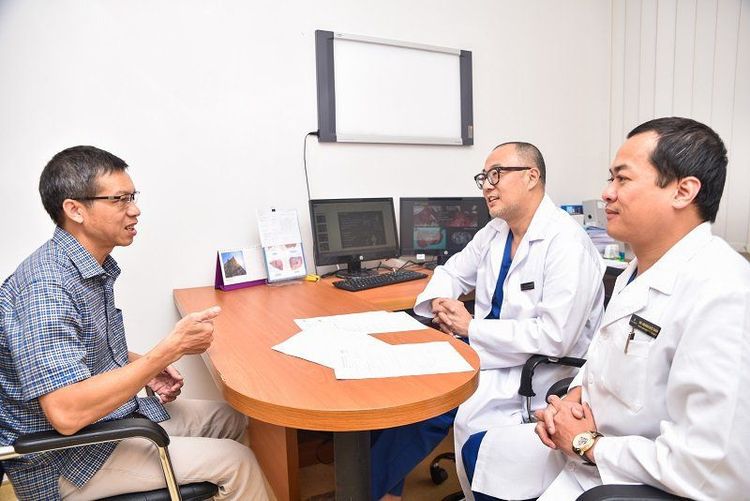
Triệu chứng đau do ung thư gan không thể kiểm soát bằng biện pháp thông thường
5. Follow-up care
In general, the nature of liver cancer as well as its treatment methods bring pain to the patient. Therefore, patients should cooperate well with their doctors to be consulted to choose the most appropriate measures to manage and control pain.
Patients need to describe their condition carefully to help medical staff understand the situation. The doctor may ask the patient to provide complete information on some of the following reference questions:
Where in the body does the patient usually feel pain? What is the pain level? When does it feel less painful? What makes the pain worse? How to describe the pain? Sharp, sharp, burning or dull pain? The more accurate and detailed the medical declaration, the easier it will be for the doctor to make the right decision on treatment and recovery, promoting effective pain relief for the patient.
Around the question of whether liver cancer is painful and is it painful for end-stage liver cancer, medical experts all believe that pain in cancer is an inevitable feeling. Moreover, cancer pain is difficult to show signs of remission, the later the stage, the larger the tumor, the more painful it will be. In addition, cancer therapies themselves also have side effects that make patients endure more pain. Patients need to maintain an optimistic spirit, build a healthy lifestyle and follow the doctor's advice to hope to be able to control the pain caused by liver cancer.
6. Screening and early detection of liver cancer at Vinmec
The package of screening and early detection of liver cancer of Vinmec Hospital includes:
Screening for the risk of liver cancer Detecting liver cancer early so that appropriate and timely treatment measures can be taken. Vinmec is the leading prestigious address in liver cancer screening with advantages such as:
Patients are examined and consulted with a team of highly specialized and experienced doctors in the Oncology specialty. Comprehensive professional cooperation with domestic and international hospitals: Singapore, Japan, USA, etc. Comprehensive treatment and care, multi-specialty coordination towards individualizing each patient. Having a full range of specialized facilities for diagnosis and staging before treatment: Endoscopy, CT scan, PET-CT scan, MRI, histopathological diagnosis, gene-cell testing, .. There are a full range of mainstream cancer treatment methods: surgery, radiation therapy, chemotherapy, stem cell transplant...
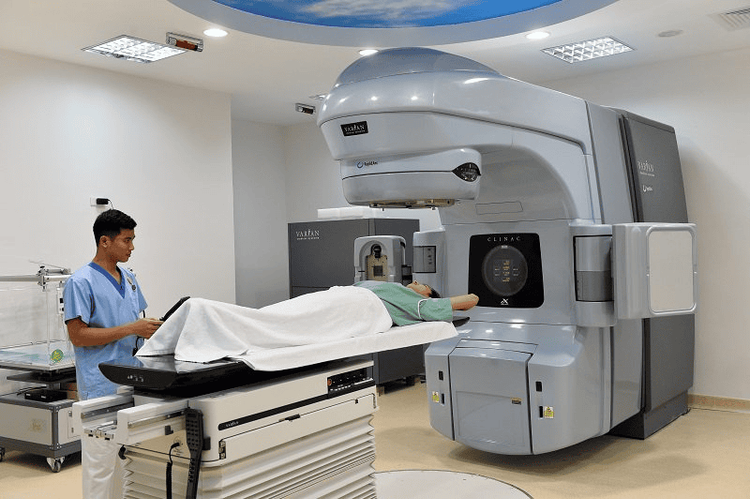
Vinmec đẩy lùi ung thư gan bằng công nghệ xạ trị siêu chuẩn
Please dial HOTLINE for more information or register for an appointment HERE. Download MyVinmec app to make appointments faster and to manage your bookings easily.
Reference source: healthline.com




